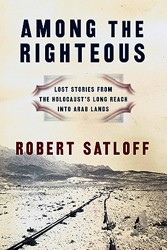The seven chapters that comprise Nazi Germany, Canadian Responses: Confronting Antisemitism in the Shadow of War explore Canada’s reactions to German anti-Semitic policies in the 1930s and 1940s from a variety of interrelated perspectives. As L. Ruth Klein, the editor, discusses in the book’s Introduction, in the spring of 1939, the nearly one thousand, mostly Jewish, passengers on the St. Louis, which had sailed from Germany, were denied entry to Cuba and sought refuge elsewhere. Canada was one of the subsequent countries that did not open its doors to the St. Louis and the ship eventually had to return to Europe, where many of its passengers perished during the Holocaust. In the book’s Preface, Alain Goldschläger explores how the idea for the collection was rooted in a conference that took place in Toronto in 2009 that explored the period in Canada that surrounded the voyage of the St. Louis. Based on these foundations, Nazi Germany, Canadian Responses explores aspects of Canada’s attitudes toward Jewish immigrants in Canada and the Nazis’ racial policies in Europe before and during World War II.
The list of scholars who have contributed to this volume is impressive and the scope of their research, as well as the varied source material that they examine, makes this a fascinating and historically important work. Doris L. Bergen explores the implications of Nazi racial policies for Jewish citizens in Germany over a six year pre-war period, as well as Canadian responses to the situation in Germany. Richard Menkis and Harold Troper examine Canada’s involvement in the 1936 Berlin Olympics and the reactions of the Canadian press. Amanda Gryzb discusses how events in 1938 and 1939, including Kristallnacht and the voyage of the St. Louis, were examined in Canadian English language media. Rebecca Margolis explores the Canadian-Yiddish press coverage of the arrival of Iberian refugees in 1944, Michael Brown discusses attitudes on Canadian campuses in the 1930s, Norman Ravvin analyzes responses to and representations of the Holocaust in Canadian literature by Jewish and non-Jewish authors, and James Walker examines attempts by Jewish citizens to gain equality in Canada before and during the war.
As Klein explores in the Introduction, despite the varied nature of these research areas, many common themes run through the book. These include examinations of textual representations of Canadian attitudes toward and responses to anti-Semitism (be it in literature or the press) and the connection between the events that were occurring in Europe and Canada (be it by the Canadian government or different groups within Canadian society). With this layered approach, Nazi Germany, Canadian Responses makes an important contribution to our understanding of this period in Canadian history. Acknowledgements, bibliography, contributors, index, introduction, photos, preface.



